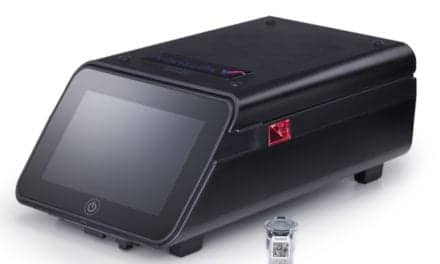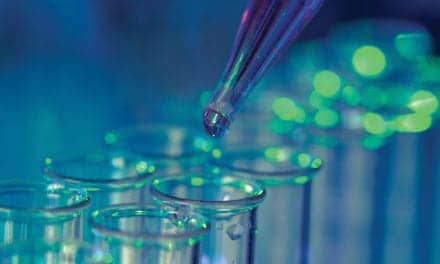Quest Diagnostics has announced that all of the company’s cholesterol test services that involve estimates of low-density lipoprotein cholesterol (LDL-C) now use a new calculation shown to improve the accuracy of testing for levels of LDL-C, a key marker of cardiovascular disease risk.
The method has the added advantage of not requiring the patient to fast from food for several hours prior to a blood draw.
Quest Diagnostics is the first national laboratory provider in the United States to make available accurate nonfasting lipid testing using the novel method. The calculation, which is not affected by recent food intake, is based on an internationally recognized formula from cardiologist Seth Martin, MD, assistant professor of medicine at the Johns Hopkins University School of Medicine. It is designed to replace the Friedewald calculation, which has been the standard method used by US laboratories for LDL-C analysis since 1972.
The development is the result of a licensing agreement between Quest Diagnostics and Johns Hopkins University. Now, any patient tested with a Quest Diagnostics cholesterol test that includes LDL-C estimates, such as comprehensive cholesterol test panels, will receive results calculated using the new method. Pricing and insurance coverage is unaffected.
“This new approach from Quest Diagnostics . . . means millions of patients will have broad access to a more accurate method of assessing their risk for, and aiding treatment of, cardiovascular disease,” says Eliot A. Brinton, MD, FAHA, FNLA, president of the Utah Lipid Center, Salt Lake City, and a member of the board of directors of the National Lipid Association. “It replaces an outmoded approach to estimating levels of the bad cholesterol, LDL. Although that method has been the standard for 45 years, it is inaccurate and misleading in many cases, especially when the patient is not fasting.”
“Our improved LDL cholesterol analysis reflects the Quest commitment to provide the broadest access to diagnostic innovation and actionable health insights, but it’s also about providing a better consumer experience and greater convenience,” says Jay Wohlgemuth, senior vice president for medical R&D, and chief medical officer at Quest Diagnostics. “Fasting for 8 to 12 hours visiting a patient service center for a blood draw in the morning is challenging, and may deter many patients from participating in lipid testing. Now, millions of people no longer have to go through this process to receive a reliable lipid test result through Quest Diagnostics.”
Cholesterol testing is among the top 10 most commonly ordered test services Quest provides each year, and is a critical component of strategies to prevent heart attack and stroke.
New method aids personalized treatment
LDL-C blood assessment can aid treatment decisions. To guide treatment decisions for the use of statins or PCSK9 inhibitors among high-risk patients, national and international guidelines generally refer to a target level of <70 mg/dL. . Yet, a recent study found that approximately one-fifth of individuals with Friedewald-estimated LDL cholesterol at levels below 70 mg/dL actually had a value of 70 mg/dL or higher using the new equation.1
“Accordingly, ongoing use of Friedewald estimation may lead to the misclassification of high-risk individuals and subsequent underutilization of lipid-lowering therapies,” wrote the authors, which included Martin. Quest Diagnostics did not participate in the study.
Other research also shows that PCSK9 inhibitors, introduced in 2015, may reduce LDL-C to 25 mg/dL or lower—levels that the Friedewald equation was never designed to calculate.
“With the advent of more-aggressive statin use, PCSK9 inhibitors, and lower LDL-C goals, we’ve entered an era of driving LDL-C as low as possible for high-risk patients,” says Brinton. “It’s exciting to have wide access to an LDL-C calculation which is accurate at very low levels.”.
“Precision medicine is changing how we treat disease, but it isn’t possible without insights from diagnostic services,” says Wohlgemuth. “By offering this new capability, we will help the medical community better assess and care for vulnerable patients in a more convenient way, potentially preventing adverse cardiovascular outcomes.”
For more information, visit Quest Diagnostics.
REFERENCE
-
Whelton SP, Meeusen JW, Donato LJ, et al. Evaluating the atherogenic burden of individuals with a Friedewald-estimated low-density lipoprotein cholesterol <70 mg/dL compared with a novel low-density lipoprotein estimation method. J Clin Lipidol. 2017;11(4):1065–1072; doi: 10.1016/j.jacl.2017.05.005.






